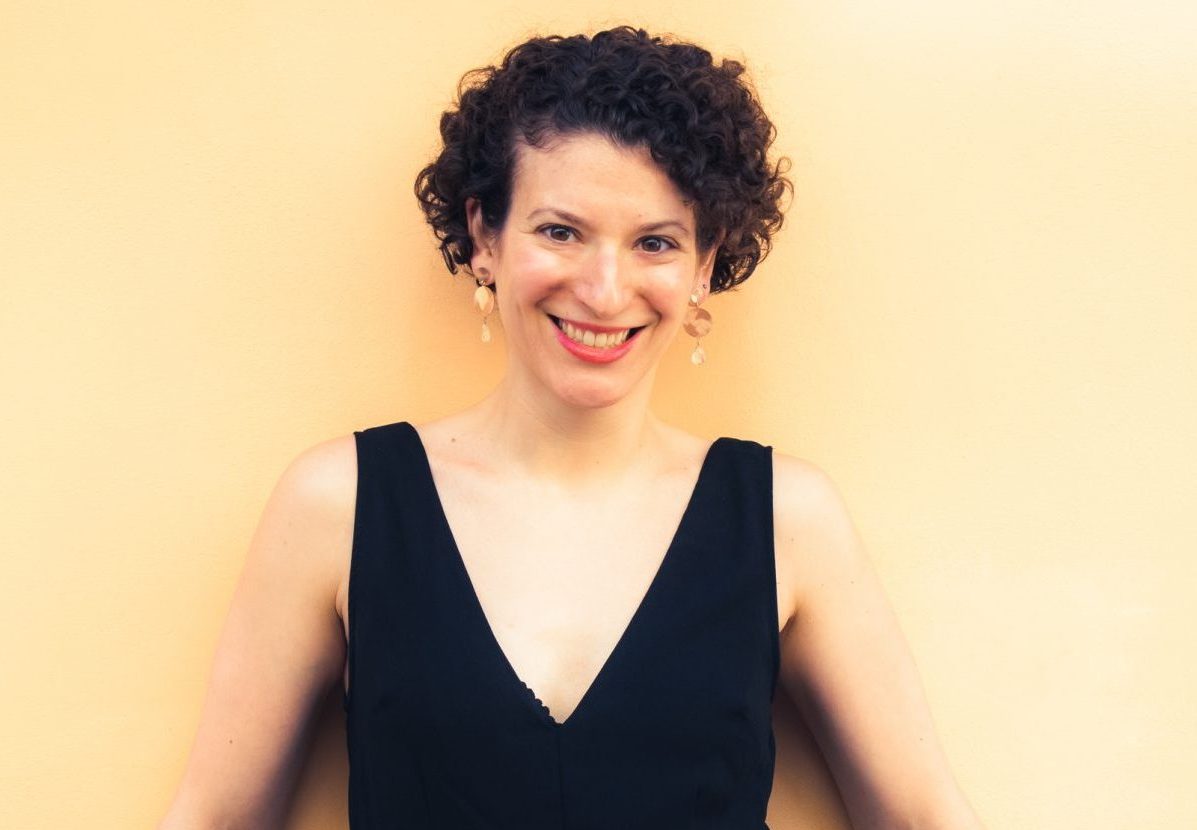Classical pianist Clare Longendyke gives emphasis to living and underrepresented composers in a new series on Classical Music Indy’s streaming service.
Words by Crystal Hammon.
In an era that’s been especially harsh on performing artists, Clare Longendyke’s savvy career moves are a roadmap for ambitious minds and survivors of all stripes. Staying relevant is always at the forefront of the local classical pianist’s mind.
Longendyke is the newest host on Classical Music Indy’s (CMI) streaming channel. It’s a role that closely aligns with her artistic mission, which has been refined by a global pandemic and widespread rejection of racial injustice. “The past 100 days in quarantine have become a vehicle for gaining a greater understanding of what I stand for,” says Longendyke, referring to her latest projects.
Making the best of adversity
Rather than sulking about canceled performances and lost opportunities, Longendyke has been working diligently, turning to music as a source of inspiration for herself and others. Starting in March, she began recording piano solos in her home studio, sharing them on her social media feeds for the next 100 days.
Like many performers, Longendyke juggles her concert schedule with a teaching role. As artist-in-residence and director of chamber music at the University of Chicago, the pandemic forced her to move music classes to an online format.
During the transition, the determined soloist also launched a virtual concert series for retirement communities and other sponsors. Longendyke is using it as yet another platform for presenting music by unheralded composers. “My concerts are a true invitation to the unfamiliar,” she says. “As I do during my live performances, I introduce each piece on my virtual programs to the audience.”
One concert in the series highlighted a composition by Thomas “Blind Tom” Wiggins, a black composer born into slavery in 1849. Not only was Wiggins born blind; he was also an autistic savant who learned to play piano by listening to his owner’s daughters play. He went on to have an important career as a pianist before his death in 1908.
“The [Wiggins] piece is not easy to perform,” she tells the audience. “Watch my hands move as I play and imagine that the composer not only wrote this when he was 17 years old, but that he performed it without being able to see his own hands moving on the keyboard.”
When audiences make that connection, it’s always a revelation. “That’s the reaction I’m going for,” she says. “And you can evoke that over the internet. What’s arguably even better is that people can access this content in their own homes.”
An advocate for the work of living and underappreciated composers
Sending these projects into a reframed world has been an affirmation of Longendyke’s sweet spot: fostering a sense of discovery through performance. As host of an eight-part series on CMI’s streaming channels, that’s precisely what she’ll be doing. “I discovered that I really have a knack for this,” Longendyke says of her CMI series. “I love teaching, programming, and I particularly enjoy working with amateur performers and classical music appreciators.”
Along with her other roles, Longendyke is also founder and creative director of Music in Bloom, a festival that celebrates the works of living composers. Later this year, the festival will highlight micro-compositions written by six local artists who were commissioned by CMI, alongside four other newly-commissioned works for the Music in Bloom artistic roster, which includes Longendyke.
Longendyke’s performances and programs have long reflected an interest in new classical composers whose race and gender kept them relatively obscure. Recent events only galvanized that commitment. “Sadly, our classical music system is innately racist, sexist and ageist,” she says. “I think it’s a critical moment to acknowledge that’s the case.”
The classical and romantic eras spawned such beautiful music that many people only want to play and hear that music. People who don’t experience a diverse range of composers are missing out on some great music.
Longendyke bridges that gap by emphasizing composers—past and present—who’ve been marginalized. Her first CMI broadcast, for example, focuses on Amy Williams, a living composer Longendyke has explored deeply through her performance repertoire and the doctoral dissertation she is writing.
Shortly after George Floyd’s death, a local sponsor invited her to give a virtual concert. “I was really struggling to figure out, in the midst of a worldwide pandemic, how I could be a protester without endangering my health,” she says. “Going forward, I decided that every program I play will feature more than just the music of those famous dead white composers everyone knows. That’s just how it’s going to be.” That day, she played a repertoire of all black composers, including Scott Joplin, Florence Price, and Henry T. Burleigh.
“I like to embellish the ways in which people think,” she says. “The new music niche is where I feel like I have the power to change what people are listening to, and who they are seeing on concert stages. That’s what I stand for, and being able to do that through Classical Music Indy’s streaming channels feels incredibly empowering.
You can tune into Clare Longendyke’s programming on Classical Music Indy’s streaming service throughout the year. Her next program will be September 21, 2020, featuring works by Nadia Boulanger.







Leave a Reply